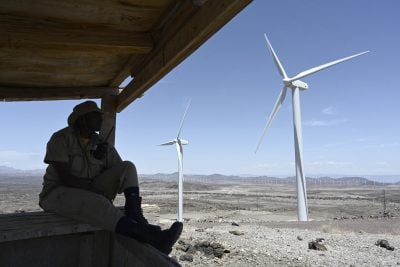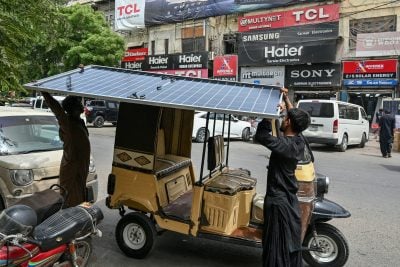The streets of Nigeria’s major cities are more often than not clogged with diesel fumes from the thousands of generators that chug away, powering the country’s homes and businesses.
For all of its massive potential, Nigeria generates a relatively small amount of electricity – around 6,500MW for its population of 170 million people. With per capita consumption of 155kWh, about half the global average, there is a huge amount of slack in the Nigerian market for power producers.
Although the country has experienced high economic growth over the past decade, this has come despite the infrastructure. As much as 40% of the cost of doing business in Nigeria is power, with private generators accounting for more than twice the grid capacity of the country, and, combined with other infrastructure concerns and the high cost of imported goods, the undersupply is a significant drag on growth.
As the country tries to industrialise and create jobs, tackling the power shortage is a huge challenge. Fixing it, however, could change the fortunes of millions. The current government has prioritised power infrastructure, aiming to generate 20,000MW by 2020, and sought to attract private sector investment and capital. The National Electric Power Authority, the state-owned utility, was broken up and several of its component parts put up for sale in 2010. In October 2013, the government handed over 15 state-owned generating companies to their new owners, after an auction that attracted more than 400 interested parties and $2.5 billion in bids.
The second phase of the privatisation process is also now under way, with the government selling up to 80% of its stake in 10 generating companies. The state transmission company signed a management deal with the Canadian utility company Manitoba Hydro. Investors praised the process for its transparency. In February, the country committed
$550 million to its sovereign wealth fund in order to invest in power supplies. Alongside the big-ticket privatisations has been a progressive improvement in the quality of the market and in regulation, says Andrew Alli, the chief executive of the African Finance Corporation, a Nigeria-based infrastructure investor.
Although the privatisations garnered most of the headlines, Alli says that the changes to the rules and regulations governing the sector are equally significant. The government has updated the tariff structures and created a bulk trading company to off-take the power generated by the privatised companies, giving them a stable market.
“It’s not sexy to talk about setting tariffs and bringing in a single buyer, but it’s very important to fix the structure of the industry into which these assets are going to be privatised,” he says.
“In two to three years from now, we’ll begin to see these things come online. We’ll see some low hanging fruit improvements between now and then,” he says. “I suspect that in five years’ time, we’ll look back and wonder why we didn’t do this before.”
Industrial users are likely to be immediate beneficiaries of cheaper grid electricity, followed by urban consumers. Although in the short term it may seem difficult to see rural customers and remote towns as markets, Alli points to the rapid rollout of mobile phones after the privatisation of Nigeria’s telecommunications industry.
“When mobile phones were launched it cost you 10,000 naira ($60) to get a SIM card. You were paying something like 30¢ per minute. For the first year, mobile phones were a very elite product,” Alli says.
“As the networks expanded, as competition increased, the prices fell and today they’re almost giving away the SIM cards and the cost per minute has come down dramatically. The point is, if you’d been asking someone six months after mobile phones started, they’d have said this is only for rich people. Middle-class people and students would say ‘I don’t think I can afford this.’ Fast forward five years and it’s a very different story.”
Want to continue reading? Subscribe today.
You've read all your free articles for this month! Subscribe now to enjoy full access to our content.
Digital Monthly
£8.00 / month
Receive full unlimited access to our articles, opinions, podcasts and more.
Digital Yearly
£70.00 / year
Our best value offer - save £26 and gain access to all of our digital content for an entire year!

 Sign in with Google
Sign in with Google 




